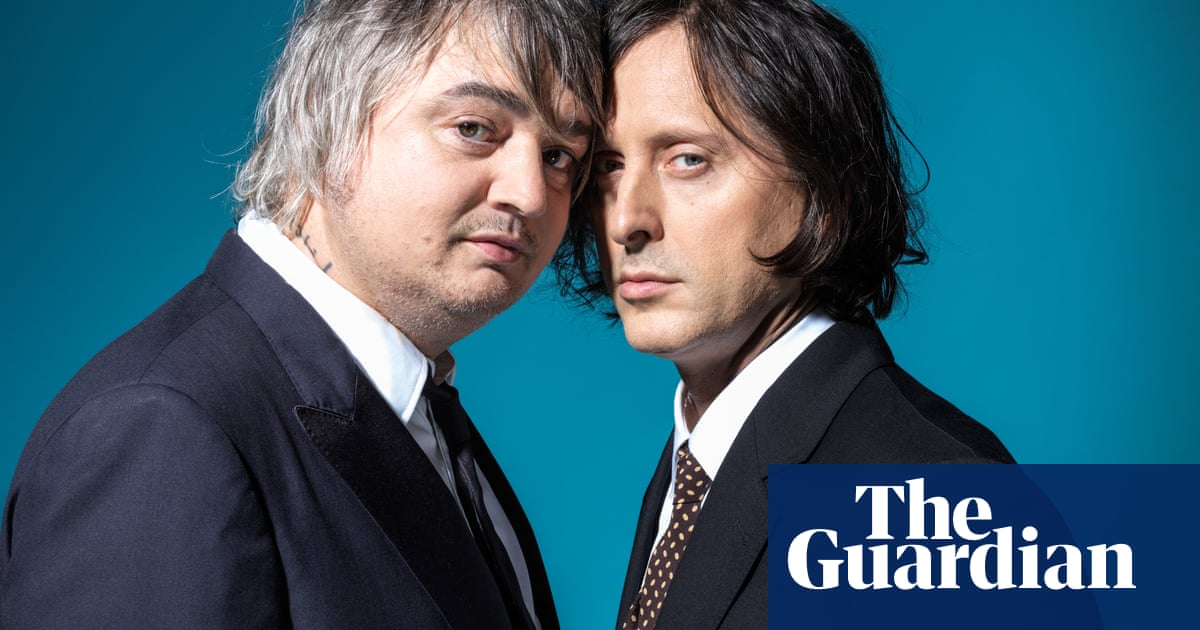Pete Doherty and Carl Barât’s relationship has been called“one of pop’s great rollercoaster romances”. They met in the early 2000s in London and forged the Libertines in the fire of squat parties and guerilla gigs across the capital. The band defined the era’s guitar music – raw energy, bohemian lyricism, “the” band names, hats. Their 2002 debut album, Up the Bracket, produced by the Clash’s Mick Jones, remains a seminal release of the decade, with bleary-eyed garage-rock hits such as I Get Along, What a Waster, and the title single, which have lit up indie discos ever since.
The co-frontmen stuck it out for a few years through thick and thin (thin being Doherty’s numerous arrests, drugs busts and that time he broke into Barât’s flat). It’s a love-hate brotherhood they cemented in the 2004 UK No 2 single Can’t Stand Me Now, which came alive when they performed, jostling for the same microphone.
Eventually the Libertines disbanded in 2004, with Barât formingDirty Pretty Thingsand Doherty focusing on Babyshambles. There have been reunions over the years: the pair attempted to bury the hatchet in 2007 and 2009, and they released 2015 album Anthems for Doomed Youth. But the 2020s have marked a new chapter. The band returned with 2024’s All Quiet on the Eastern Esplanade, which was recorded – completely sober, they say – at the studio they co-founded in Margate, Kent.
Now’s your chance to ask them everything you’ve ever wanted to know about being the boys in the band. On Sunday 29 June at 12pm at the Astrolabe theatre, they’ll be speaking to music critic Miranda Sawyer with the help of this reader Q&A. Fancy finding out how they view their legacy? What the secret is to their songwriting? Or how they survived those early years? Post your questions in the comments below and the best will be read out onstage. If you’re at Glastonbury, come along and see it live, but if you’re not we’ll publish highlights online afterwards.
